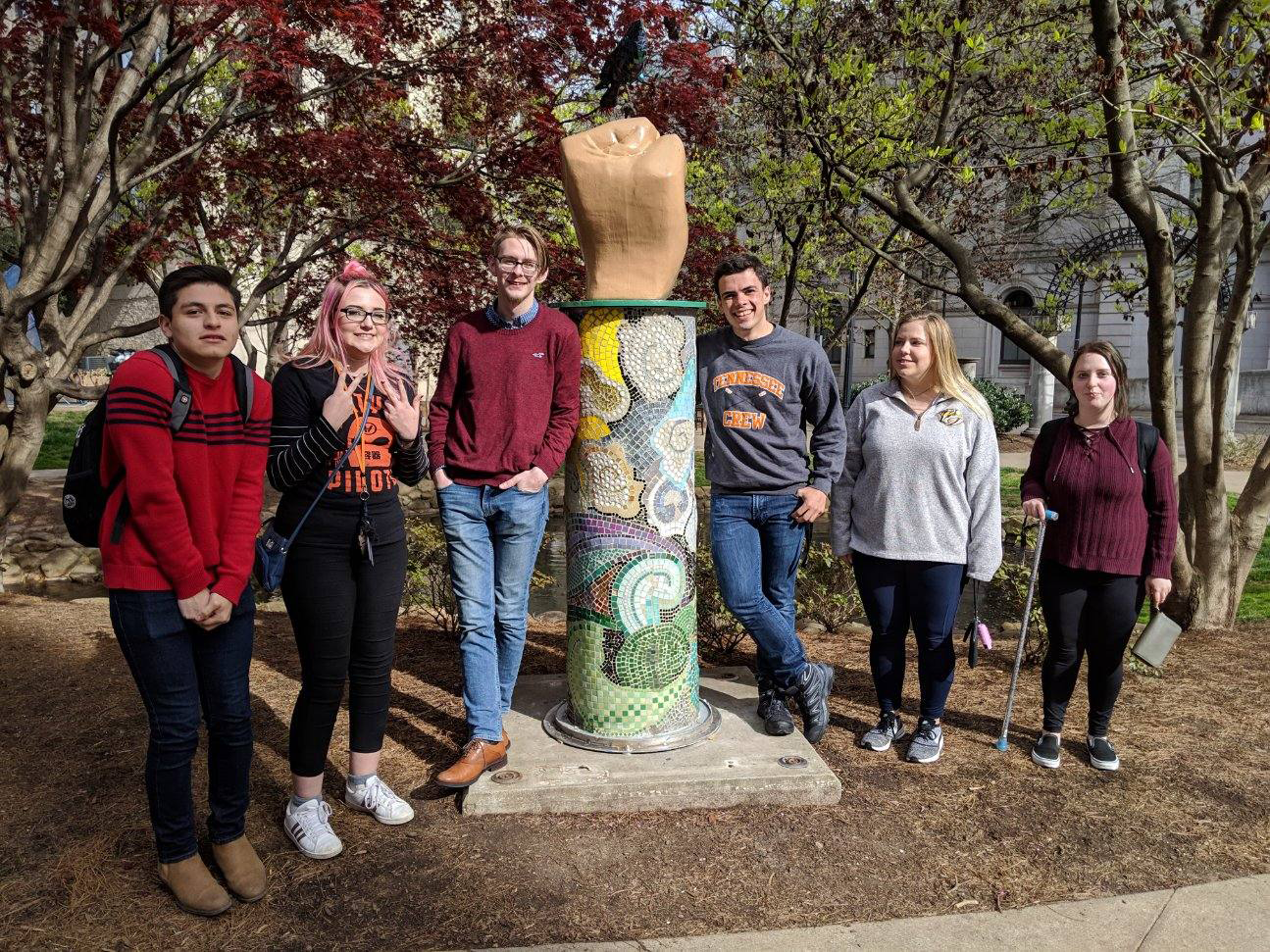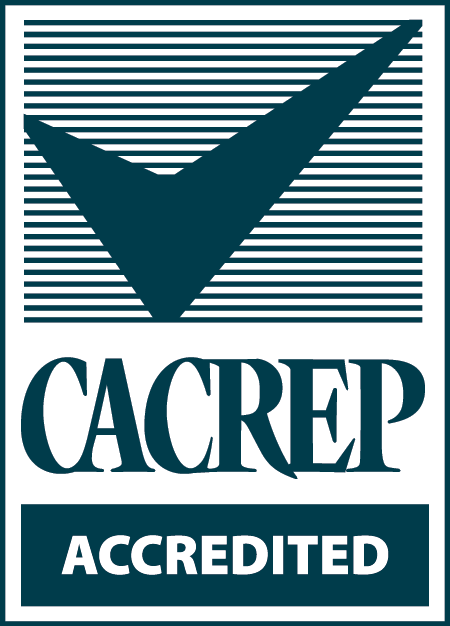PhD in Counselor Education
Our PhD in Counselor Education is designed for individuals who have completed a master’s degree in counseling or a closely related profession. We prepare counselor educators and supervisors with strong professional identity and skills to enrich the counseling profession through advanced practice, supervision, teaching, research, leadership, and advocacy.
Our program is offered in a face-to-face format in Knoxville, TN. Counselor education courses are offered during the day or early evening, Monday-Thursday. Some research and cognate courses outside of counselor education are offered online or in the evening. Most students enroll on a full-time basis, completing required coursework the first two years and completing dissertation in the third or fourth year. Part-time options are available by advisement.

Program Mission and Objectives
Our Counseling and Counselor Education programs promote optimal development and holistic wellness across the lifespan by advancing professional counseling through development of counselors and counselor educators, research, leadership, and advocacy. We strive to enhance deeply healing relationships and evidence-informed practices in ways that are community-engaged and culturally sustaining. Our PhD in Counselor Education prepares counselor educators and supervisors with strong professional identity and skills to enrich the counseling profession through advanced practice, supervision, teaching, research, leadership, and advocacy.
Students in our PhD in Counselor Education will:
- Explore and engage in culturally sustaining, developmentally responsive, and evidence-informed counseling approaches that prepare them to educate and supervise counselors while contributing to the development of counseling theory and practice
- Promote skills of developing counselors through culturally sustaining, developmentally responsive, and ethical supervisory relationships
- Utilize culturally sustaining, developmentally responsive, and ethical teaching and evaluation methods relevant to educating counselors
- Develop scholarly writing and research skills necessary for extending the knowledge base of the counseling profession
- Engage leadership and advocacy skills for use in professional association, higher education, and community contexts
- Demonstrate professional dispositions including Commitment, Humility, Openness, Respect, Integrity, and Self-Awareness.
- Study in an inclusive, engaged learning community that maintains high standards and is comprised of peers, faculty, and community partners
Key Performance Indicators
As a CACREP-accredited program, we utilize a series of key performance indicators (KPIs) to ensure every graduate leaves us with the knowledge and skills necessary to be successful in counselor education. Our KPIs reflect our core values alongside what we know of evidence-informed practice. They are as follows:
- Conceptualize a client from a counseling theoretical orientation, including attention to cultural, developmental, and ethical considerations
- Develop supervisory relationships that promote skills and meet needs of developing counselors
- Plan, implement, and evaluate evidence-informed teaching strategies in counseling courses
- Develop manuscripts suitable for publication in peer-reviewed professional counseling journals
- Analyze current topical and political issues impacting the counseling profession
Core Faculty Members

Melinda M. Gibbons
Professor and Counselor Education Unit Director

Hyunhee Kim
Assistant Professor

Jennifer Moralejo
Clinical Assistant Professor and CTC Director

Jordan B. Westcott
Assistant Professor

Learn More About Us
Our application for Fall 2026 entry will open in August, 2025, with a submission deadline of December 1, 2025.
We will be holding on-line information sessions as follows:
All times EASTERN
Tuesday, May 13: 5-6pm
Thursday, June 5: 6-7pm
Wednesday, July 9: 12-1pm
Monday, August 4, 5-6pm
Please reach out to COUNAdmit@utk.edu for Zoom details.
Admissions Criteria and Process
We are glad you are interested in our PhD in Counselor Education!
Admission Process
We admit students to begin our program during the Fall semester only. We use a two-step application process: written application and on-campus interview. All applicants must have completed a master’s degree in counseling or a closely related profession, preferably from a CACREP-accredited program, prior to beginning the program. We use a holistic admissions process that includes careful consideration of each academic readiness for doctoral study, professional experience, professional dispositions, oral and written communication skills, commitment to access and engagement, potential for scholarship, and potential for professional leadership and advocacy.
The next round of applications is due December 1 to begin in August the following year. You can begin the process by submitting an online application to the Office of Graduate Admissions. International applicants should also follow instructions in the Admissions Guide for Graduate International Students.
Written Application
Our written application includes materials beyond those that are required in the general graduate school application. The application portal will provide instructions for completing each component of the written application. Our customized application components include:
- Resumé or Curriculum Vita
- Letter of Introduction
- Developing Counseling Relationships Essay
- Transcript(s) – You may simplify your admissions process by providing an electronic or unofficial version of your original transcript at the time of application. If you are admitted to the program, you have official copies of your transcripts sent directly to UT Graduate Admissions. For help with this process check out the Graduate School page on Transcripts or call Graduate Admissions at 865-974-3251.
- Three Completed References – Choose references who can assess your academic background and likely success in a rigorous program focused on interpersonal skills. If you are a recent graduate, you should include one or more faculty members who can attest to your work as a student. You may also select employers or volunteer supervisors who are familiar with your work. Family members and personal friends are not appropriate references. The application system will prompt your references to submit their forms directly. At least two of your references must be submitted by the application deadline.
- Please note: the GRE is not required, and we will not consider GRE scores in our process
On-Campus Interview
Following review of the written application, we will invite some applicants for an on-campus held on campus in mid-January. We will notify all applicants of their interview status by mid-November. If you are selected for an interview, you will be asked to complete a 2-3 page written response to a case study. We will send the materials to applicants one week prior to the interview date.
Contact Us
If you have questions regarding our program-specific admissions process, please contact our Academic Unit Coordinator, Dr. Melinda Gibbons, at mgibbon2@utk.edu. If you have questions regarding the Graduate School application process or the SLATE application portal, please Contact Graduate Admissions. To check on the status of your application to the UT Graduate School, please see information on the Graduate Admissions Application Status page or call (865) 974-3251.
Equal Opportunity and Accessibility
All qualified applicants will receive equal consideration for employment and admission without regard to race, color, national origin, religion, sex, pregnancy, marital status, sexual orientation, gender identity, age, physical or mental disability, genetic information, veteran status, and parental status, or any other characteristic protected by federal or state law. In accordance with the requirements of Title VI of the Civil Rights Act of 1964, Title IX of the Education Amendments of 1972, Section 504 of the Rehabilitation Act of 1973, and the Americans with Disabilities Act of 1990, the University of Tennessee affirmatively states that it does not discriminate on the basis of race, sex, or disability in its education programs and activities, and this policy extends to employment by the university. Requests for accommodations of a disability should be directed to the Office of Equal Opportunity and Accessibility, 1840 Melrose Avenue Knoxville, Tennessee 37996-3560 or eoa@utk.edu or (865)974-2498. Inquiries and charges of violation of Title VI (race, color and national origin), Title IX (sex), Section 504 (disability), the ADA (disability), the Age Discrimination in Employment Act (age), sexual orientation, or veteran status should be directed to the Office of Investigation & Resolution 216 Business Incubator Building 2450 EJ. Chapman Drive Knoxville, Tennessee 37996 or (865)974-0717 or investigations@utk.edu.
Accreditation, Degree Requirements, and Courses

Our PhD in Counselor Education is accredited by the Council for the Accreditation of Counseling and Related Educational Programs (CACREP). The degree requires 73 credit hours including dedicated coursework in the major, a cognate, research, professional practice field experience, and dissertation. All students apprentice with faculty members to complete a series of six 100-hour internships including one counseling, two supervision, two teaching, and one experience of choice.
You can view a list of our courses and their descriptions by visiting the UT Graduate Catalog.
Our Professional Dispositions
Professional dispositions refer to the behaviors and characteristics that reflect a counselor’s commitment to ethical and professional practice. These include how counselors engage with clients, faculty, supervisors, and peers—especially in diverse, multicultural, and global contexts (CACREP, 2024). All members of our community are expected to demonstrate these dispositions. Faculty are responsible for helping students strengthen professional dispositions necessary for effectiveness as counselors. We have identified key dispositions associated with success in the counseling profession. You will have opportunities to develop and demonstrate each of these dispositions throughout the program.
The acronym CHORIS may help you remember them.
- Commitment – Demonstrates engagement in and dedication to the learning process, the counseling profession, and the development of counseling skills and knowledge. Completes tasks by scheduled deadlines, meets program and site expectations, and takes initiative in program and site activities.
- Humility – Demonstrates commitment to self-critique regarding own counseling skills, ability, and knowledge with a recognition that professional growth is a life-long process. Embraces an attitude of curiosity and acceptance of others’ beliefs, identities, and values.
- Openness – Demonstrates an interest in learning, growing, and changing behavior. Receives and integrates feedback, alternate perspectives, and new ideas into thinking and behaviors.
- Respect – Demonstrates an ability to collaborate with colleagues and supervisors in the pursuit of shared goals and understanding. Recognizes role and maintains core conditions when navigating challenging or conflictual situations. Communicates with colleagues and supervisors effectively and appropriately.
- Integrity – Demonstrates professional behavior with others, including maturity and honesty within all professional interactions. Takes responsibility for own professional behavior during challenging circumstances, including providing an accurate appraisal of the situation that is genuine and truthful regarding the events that transpired. Accepts mistakes and avoids placing blame on others. Adheres to professional and ethical guidelines for the counseling profession.
- Self-Awareness – Demonstrates ability to recognize and manage own thoughts, feelings, and actions and how these impact relationships with others. Actively pursues learning about self in relationship to the world around them. Implements professional self-care strategies to optimize wellness, mitigate personal concerns, and prevent burnout that may impact clients and counselor competency.
Vital Statistics and Annual Report
The quality of your education is important. As a CACREP-accredited program we monitor and report on performance indicators each year. Our doctoral program features high levels of degree completion and strong employment rates. Learn more about our vital statistics and our overall program performance by reading our annual report linked here.
Costs, Assistantships, and Financial Aid
You can learn more about costs and funding by visiting the Graduate School’s website. This page will guide you to considering costs specific to your status as an in-state, out of state, or international student.
Full-time doctoral students are eligible for graduate assistantships inclusive of tuition, fees, and health insurance. In recent years, we have been able to secure three years of funding for all full-time doctoral students. Other assistantship opportunities are available on campus as well. For more information about costs and funding visit The Graduate School.

Contact Us
If you have additional questions regarding the program after reading our website, you are welcome to contact our Academic Unit Coordinator, Dr. Melinda Gibbons, at mgibbon2@utk.edu.
For questions regarding residency, finances, and the application portal, please view the materials located at Graduate Admissions. You may contact them with follow-up questions.


